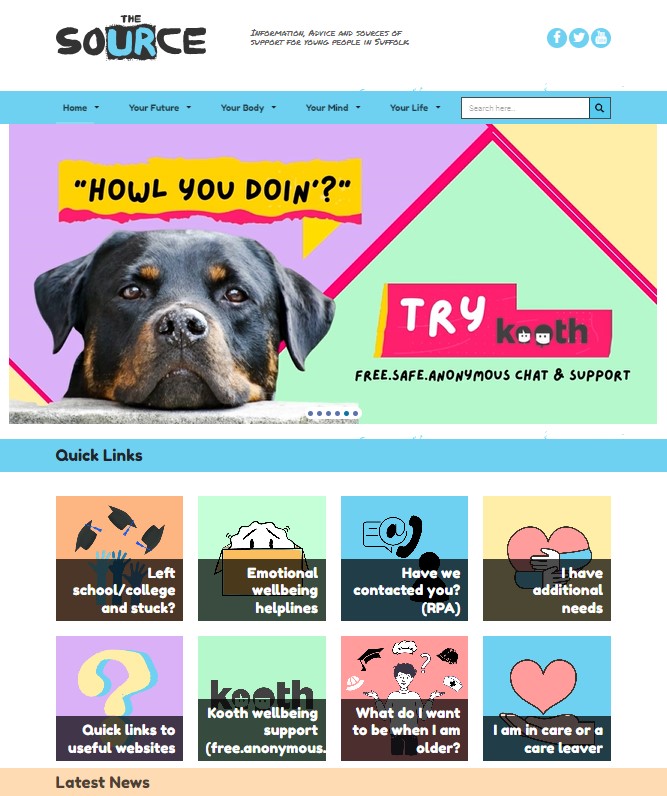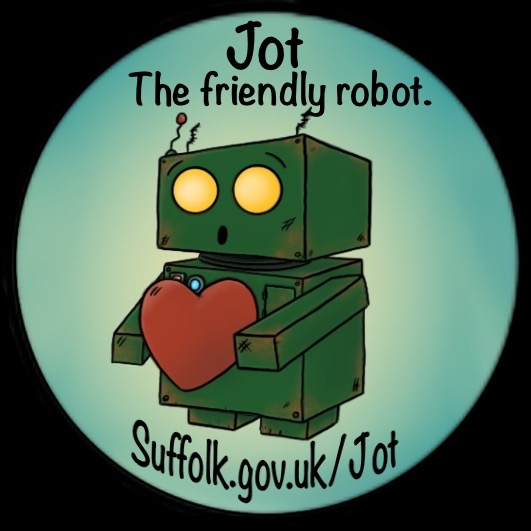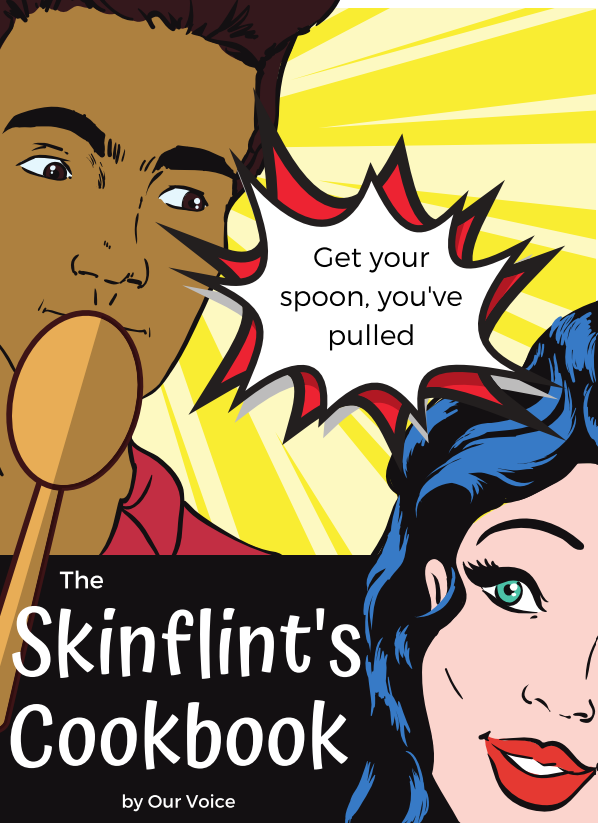What is ‘You said, we did’?
‘You Said, We Did’ is what Suffolk County Council use to show examples of changes made to children and young people’s support services in Suffolk, based on feedback from children and young people.
It’s important young people (like you) are listened to by the county council to ensure that the services created are co-produced with children and young people in mind. Young people work hard to tell us what’s good, what’s not so good, and what could be done better. Below are examples of how the council has listened and used feedback from young people to improve support in Suffolk:
Ideal Worker
Young people said…
The “Ideal Worker” shows the type of person that children and young people say they would like to have supporting them – the ideal characteristics to ensure they feel comfortable engaging with a member of staff.
“The attitude and approach of the people that work with us and support us make all the difference, so we have developed the ‘Ideal Worker’ which sets out our expectations of how workers should behave.”
– Young person
We did – how has the service responded?
The ‘Ideal Worker’ is now used in all job descriptions and service specifications across Suffolk County Council’s children and young people’s services, and is used in SEND (Special Educational Needs & Disabilities) staff induction training.
Young people are now involved in the Council’s recruitment of staff who are to work with children, and young people, basing their interview questions on the Ideal Worker.
The Ideal Worker has evolved into a series of “ideal” documents within the council to help staff know the best way to engage with young people. These include:
- What makes an ideal meeting
- What makes good communication
- What makes good support for autistic young people
Feedback to young people – what differences will young people see/feel?
The people working with and supporting young people will display the qualities of the Ideal Worker.
Young people will feel valued, listened to and well-supported by the people around them.
The SEND young people’s survey for 2023 included a question around whether the people supporting young people displayed these qualities.
The results from the 2023 survey found that the Ideal worker characteristics are being widely displayed in schools/colleges.
Care Fair
Young people said…
Young people told us that they felt confused when changing from different teams in Childrens Services within the council, and didn’t always know what support they could get from what team when in care and leaving care.
We did – how has the service responded?
The Council arranged a “Care Fair” event where all teams in the council who support children in care could come and showcase the support that they offer and at what age a young person in care could access this support.
It was important that the Care Fair had a fun element to it, and that the whole family (including their birth families) were invited to aid better understanding (as mentioned from the feedback from young people).
The event was so successful that the “Care Fair” has become an annual event that will take place in different areas of the county.
Feedback to young people – what differences will they see/feel?
Young people, their families and friends will have a better understanding of children in care services and what teams at what stages of their life will be supporting them.
The event provides a fun day out together for all of the different types of families that support children in care.
“I got to meet other young people and learn from their experiences around what helped them. It gave my sister a better understanding around my time in care.”
– Child whose in care
Coming into Care Packs
Young people said…
Our care experienced young people told us that they would have felt more supported on their first night in care, if there had been a pack that gave them more information and practical items that they may need for their first night.
We did – how has the service responded?
‘Coming into Care’ packs were co-produced with care experienced young people and now all young people in Suffolk that come into care receive a pack with a letter from a young person from the ‘Children in Care Council’
They also made a video about all of the different staff and teams they may be in contact with.
Feedback to young people – what differences will they see/feel?
Young people said their first night in care was hard, so having a letter from another young person who knows what that first night feels like can help provide some reassurance and comfort.
They can also choose to join one of the Children in Care Councils. (Brighter Futures, C2C)
It’s not like Tracey Beaker film
Young people said…
Care experienced young people told us they felt a stigma at school around being in care and this could lead to bullying.
We did – how has the service responded?
A film was made with those young people about what it felt like to feel stigmatised and to address some of the myths surrounding children and young people in care.
The film (below) is promoted to teacher’s with the offer of lived experience training for students and school staff.
Feedback to young people – what differences will they see/feel?
The film will be offered to schools as part of an assembly or workshop for young people and staff to take part in.
It will help address the misunderstandings around why young people come into care and help reduce stigma and bullying.
Support in Schools
Young people said…
Young people said that they wanted more support in schools around their self-esteem and anxiety.
We did – how has the service responded?
We sent our One-page profile and a welcoming letter to the young person, so that they knew more about us,
Gave them choice and control – where they would feel most comfortable meeting and who they would like there.
Spent time listening to their voice, understanding their needs and how they wanted support. Putting the young person at the centre of what we do.
Advocate the young person’s voice during professional meetings, so that they feel valued and listened to.
Feedback to young people – what differences will they see/feel?
Develop a trusting relationship with a professional which they had not done before.
✓ Is able to leave the house more and be socially more engaging with their peers, as their self-esteem and resilience has increased.
✓ Feels valued and heard and can continue building a trusting working relationship, with other professionals in the future.
Top Ten Tips for Social Workers and guidance for changing Social Workers
Young people said…
Young people have told us that their Social Workers change too often.
“I’ve had ten social workers in two years, there’s no point trying to get to know them
– Young person
We did – how has the service responded?
Young people created ‘Ten Top Tips for Social Workers’ and for the ‘Changing Social Worker’ guidance, which is to be included in social worker induction training and the council’s handbook for new apprentice social workers.
The top tips are also being used in development sessions with other professionals who work with children and young people (where appropriate)
Young people have taken these top ten tips and delivered them in lived experience workshops with social worker students at the University of East Anglia.
Feedback to young people – what differences will they see/feel?
Young people will see their social workers working in the same way with the help of their top ten tips and the guidance.
Young people will feel more able to build good relationships and trust with their social workers, and have guidance around when they are no longer going to work with a young person.
Foster Carers Recruitment and Training
Young people said…
Young people in care told us that they felt Foster Carers could be very different (inconsistent) in their approach and training.
“I’ve had Foster Carers that were brilliant and made me feel really welcome by cooking my favourite meal and others who were much less engaged with me.”
– Young person
We did – how has the service responded?
A series of training video’s were created with young people based on different age groups (a child and a young person) to capture their thoughts and opinions on – What makes a good Foster Carer?
The films are now shown in the Council’s ‘Skills to Foster’ training courses for new Foster Carers.
Feedback to young people – what differences will they see/feel?
Young people in care should see a more consistent approach with how Foster Carers welcome them, and Foster Carers can focus more on the things that are important to them.
New Foster Carers will be aware of the needs of young people in care, and this will support the Council’s Fostering Team to recruit good Foster Carers.
Recruitment and Selection
Young people said…
Young people wanted to be part of the recruitment and selection process when the Council recruits staff to work with young people in their Children and Young People’s Support Services.
“I think we should have a say in the people who work with us, we know what a good Social Worker looks like better than anyone.”
– Young person
We did – how has the service responded?
The Council now provides a young person’s interview panel whenever they have a staff vacancy within their Children and Young People’s Services. They have a training offer to young people who wish to take part in the panel, and a group of young people who sit on interview panels.
The young person’s panels now routinely assists the selection of newly qualified and Apprentice Social Workers.
Feedback to young people – what differences will they see/feel?
Young people use their lived experience to interview Council staff members who will be working with children and young People in Suffolk.
The young person’s interview panel’s now play an important role in the Council’s decision making around who they should offer jobs to, and the young people involved in the panels know that their voices are being heard.
Leaving Care Welcome Pack
Young people said…
Young people in care wanted a leaving care welcome pack for when they joined the Leaving Care Team with practical items to support independent living.
We did – how has the service responded?
A welcome pack has been developed and is now available to all young people joining the Leaving Care Teams
A cookbook “The Skinflints Cookbook” (below) was developed over a year with young people to aid children leaving care with cooking. It includes tips and easy recipe’s they can try, and money-saving ideas to help with their weekly food shop. The cookbook was produced specifically to go into the packs.
Feedback to young people – what differences will they see/feel?
Young people joining the Leaving Care Service will get a ‘Coming into the Leaving Care Service’ pack.
The pack will give young people who are leaving care the advice they need to start independent living and equip them with knowledge gathered from other young people who have leaving care experience.
The Source website for Young People
Young people said…
Young people told us that they wanted a one-stop shop for finding information and support that children and young people in Suffolk needed to know about.
They felt that the previous (old) Source website was too busy and not easy to use.
We did – how has the service responded?
The Source website (the site you’re on) has had a complete re-design and it’s content co-produced and re-developed with high school and college students. The site was relaunched to young people in Suffolk, and those that support them, in March 2023.

Feedback to young people – what differences will they see/feel?
“I’ve had a look…and it’s amazing!!! How very clever and engaging it is.
– Communities Together
If I was a young person (those days are well gone!) I’d definitely want to engage with this. It is brilliant! Well done Suffolk County Council!”
“Your website is fantastic!”
“We highlight TheSource website as a resource for students to go to for information about their health (mental and physical). As well as careers info. This is done through tutors, etc. But also when supporting students individually. I have always found the info you have available is persistent and correctly pitched. The students I have used resources with have always responded positively and so it is an immediate recommend.
– Teacher
“I love the new Source website, fab.”
– HealthWatch Suffolk
Resources for Young Children
Young people said…
That there was an identified gap in resources for mental health and well-being in primary schools aimed specifically at primary school children.
We did – how has the service responded?
A resource pack based around Jot the robot was developed with young people. This included an adaption of the Source’s 30 day what’s up challenge as a compact booklet filled with colourful illustrations along with Jot well-being workshops conducted in schools and a selection of animated videos.

Feedback to young people – what differences will they see/feel?
Jot has enabled younger aged children to open up around what they are feeling.
We have also found that older children with SEND have found this a really useful resource.
“Thank you for drawing my robot, Gucci. I really enjoyed making him. Thank you for helping people with their mental health”.
“I think this would be a wonderful activity for others to do. I will also pass this on to the other lecturers who may try this activity with their learners. Thanks again – I have shown your drawings to the students and they are thrilled”.
We are developing a pack to enable schools to download the resources and session plans on the SCC website in order for them to deliver the sessions themselves.
Questions and Answers for the Programme Board
Young people said…
Members of the Young Person’s Network (SEND) presented at this year’s programme board and left the board with some questions around topics that were important to them.
We did – how has the service responded?
The board made up of the Local Area Partnership has responded to those questions, please see below…
Feedback to young people – what differences will they see/feel?
Feedback from schools tells us that its really important for their students to lead the way when talking about what’s important to them. Its then vitally important that we respond to those conversations, so that they feel their voices are truly heard not just in the moment at a meeting.
For more examples of YSWD for improvements to Special Educational Needs and Disabilities (SEND) support for children, young people and families in Suffolk, visit the Suffolk Local Offer website.
Page updated on September 17th, 2024 at 11:32am





